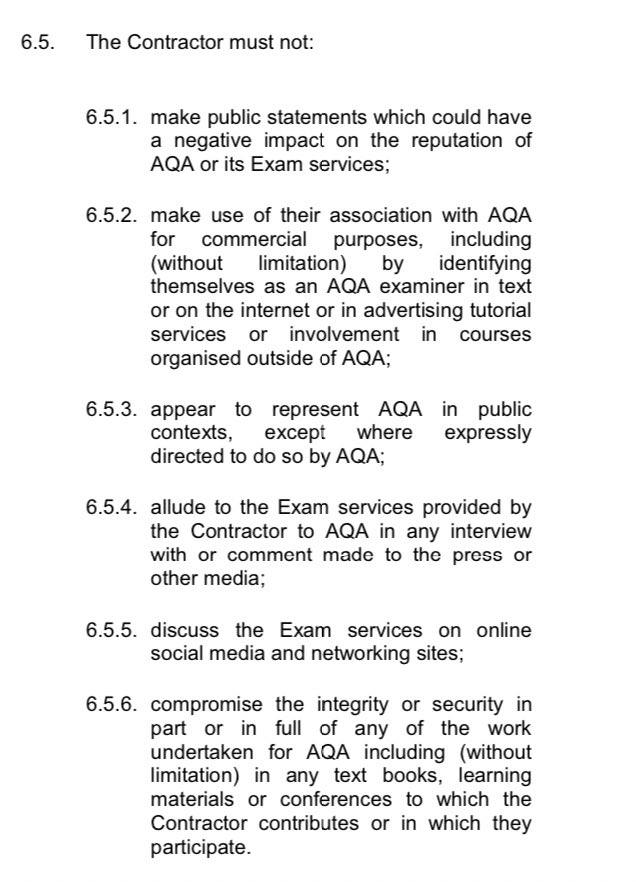
Several messages asking for exam marking recommendations. I’ve never outsourced but I know many who have used @ChapterEdu and they come highly recommended. A few things to note when outsourcing marking:
💫 ensure to carry out due diligence to ensure… ⬇️
💫 ensure to carry out due diligence to ensure… ⬇️
The company are legitimate and able to trade as such.
💫 Exercise caution around any explicit mention of exam board specialisms. Examiners are breaking terms of appointment if they use their role in a commercial capacity:
💫 Exercise caution around any explicit mention of exam board specialisms. Examiners are breaking terms of appointment if they use their role in a commercial capacity:

💫 Ask questions around the company’s rigour to ensure their data is reliable. If public funds are going to be put to outsourcing marking, it’s crucial that it’s going to result in data that will be at least more reliable than any possible teacher bias that may have occurred..
In-house.
💫 where recommendations have been made, finance departments will ask the question establishing credibility. Ensure that the company is transparent and recommendations are from schools as opposed to individuals, in the same way you would approach references.
💫 where recommendations have been made, finance departments will ask the question establishing credibility. Ensure that the company is transparent and recommendations are from schools as opposed to individuals, in the same way you would approach references.
💫Finally, consider the opportunity cost. Marking as a collective task within depts is one of the most effective ways to get to grips with the mark scheme. Have conversations locally and make use of dept time if you can because it’s excellent CPD.
@Team_English1 #TeamEnglish
@Team_English1 #TeamEnglish
• • •
Missing some Tweet in this thread? You can try to
force a refresh



